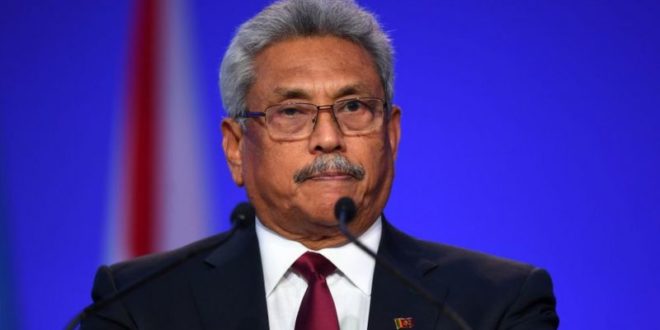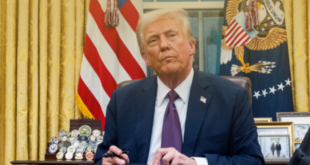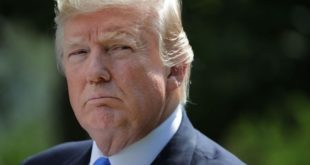Sri Lanka President Gotabaya Rajapaksa has confirmed he will be resigning, the prime minister’s office has said.
It comes two days after crowds stormed the official residence of both leaders. Demonstrators are still occupying the buildings and are refusing to leave until both leaders are gone.
The parliament Speaker had earlier said the president would resign on 13 July.
Mr Rajapaksa’s current whereabouts are unknown. The BBC has been told that he is on a navy vessel at sea.
His resignation was first announced by the parliament Speaker on Saturday, but many Sri Lankans responded with scepticism to the idea that he would relinquish power.
On Monday, Prime Minister Ranil Wickremesinghe’s office said in a statement it had been informed by Mr Rajapaksa that he would step down on Wednesday.
However, there has still been no direct word from Mr Rajapaksa.
Under Sri Lanka’s constitution, his resignation can only formally be accepted when he resigns by letter to the parliament Speaker – which has yet to happen.
Mr Wickremesinghe had earlier also said he would step down from his position.
Mr Rajapaksa had departed the presidential palace before protesters entered on Saturday, calling for his resignation.
His brother, former Prime Minister Mahinda Rajapaksa, is at a naval base in the country, the sources say.
For months, Sri Lankans have been calling for the resignations of the Rajapaksa brothers.
The president has been blamed for the country’s economic mismanagement, which has caused shortages of food, fuel and medicine for months.
Inside the occupied palace on Sunday, protesters were refusing to budge.
“Our struggle is not over,” student protest leader Lahiru Weerasekara said, quoted by AFP. “We won’t give up this struggle until [President Rajapaksa] actually leaves,” he said.
“The next couple of days are going to be extremely uncertain times as to see what transpires politically,” political analyst and human rights lawyer Bhavani Fonseka told Reuters, adding that it would be interesting to see if the two leaders “actually resign”.
Other politicians in Sri Lanka met on Sunday to discuss how to handle a smooth transition of power.
The speaker of Sri Lanka’s parliament told the BBC World Service Newshour programme a new cross-party coalition government would need to be formed within a week of the president officially stepping down.
 Home Of Ghana News Ghana News, Entertainment And More
Home Of Ghana News Ghana News, Entertainment And More





